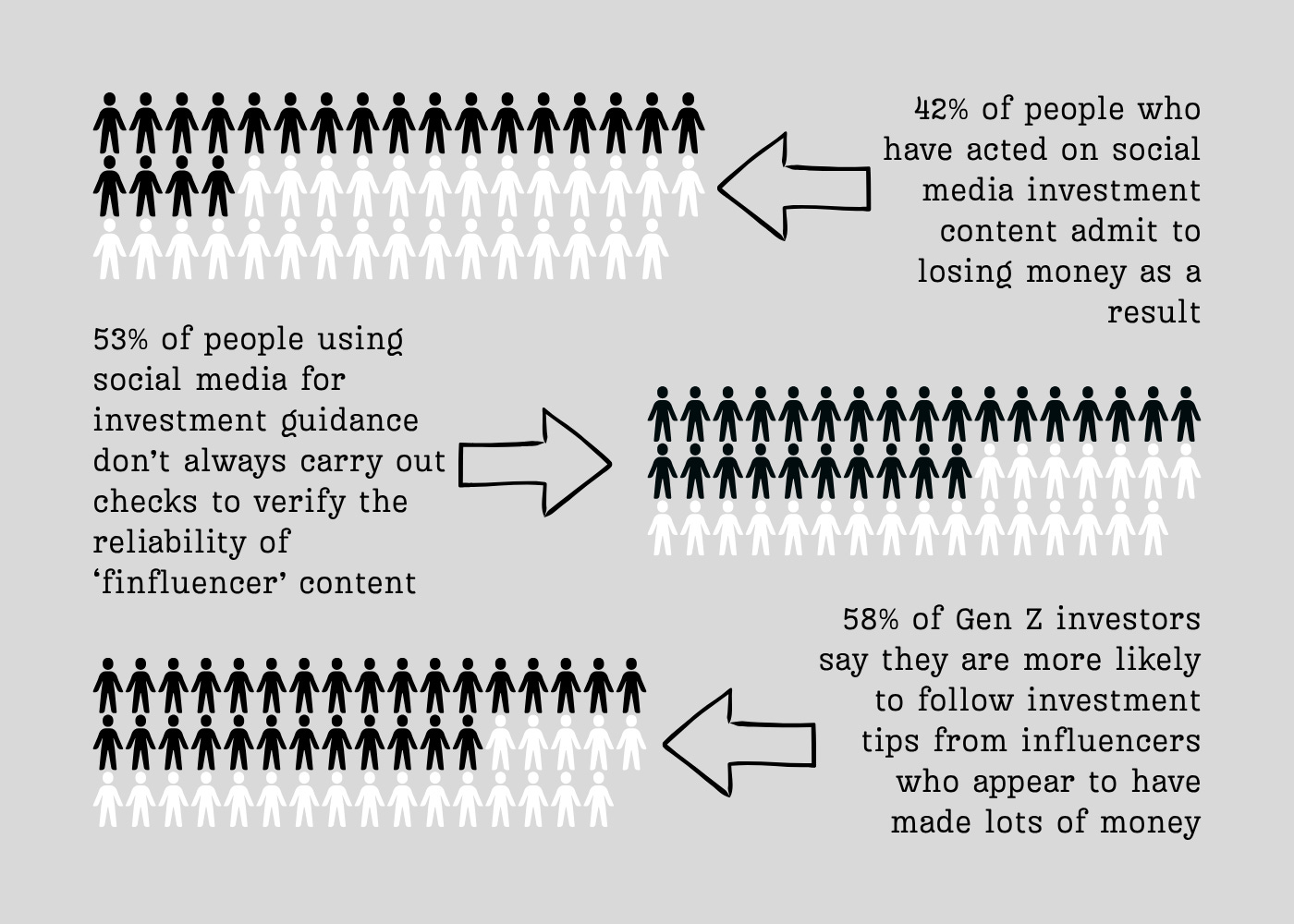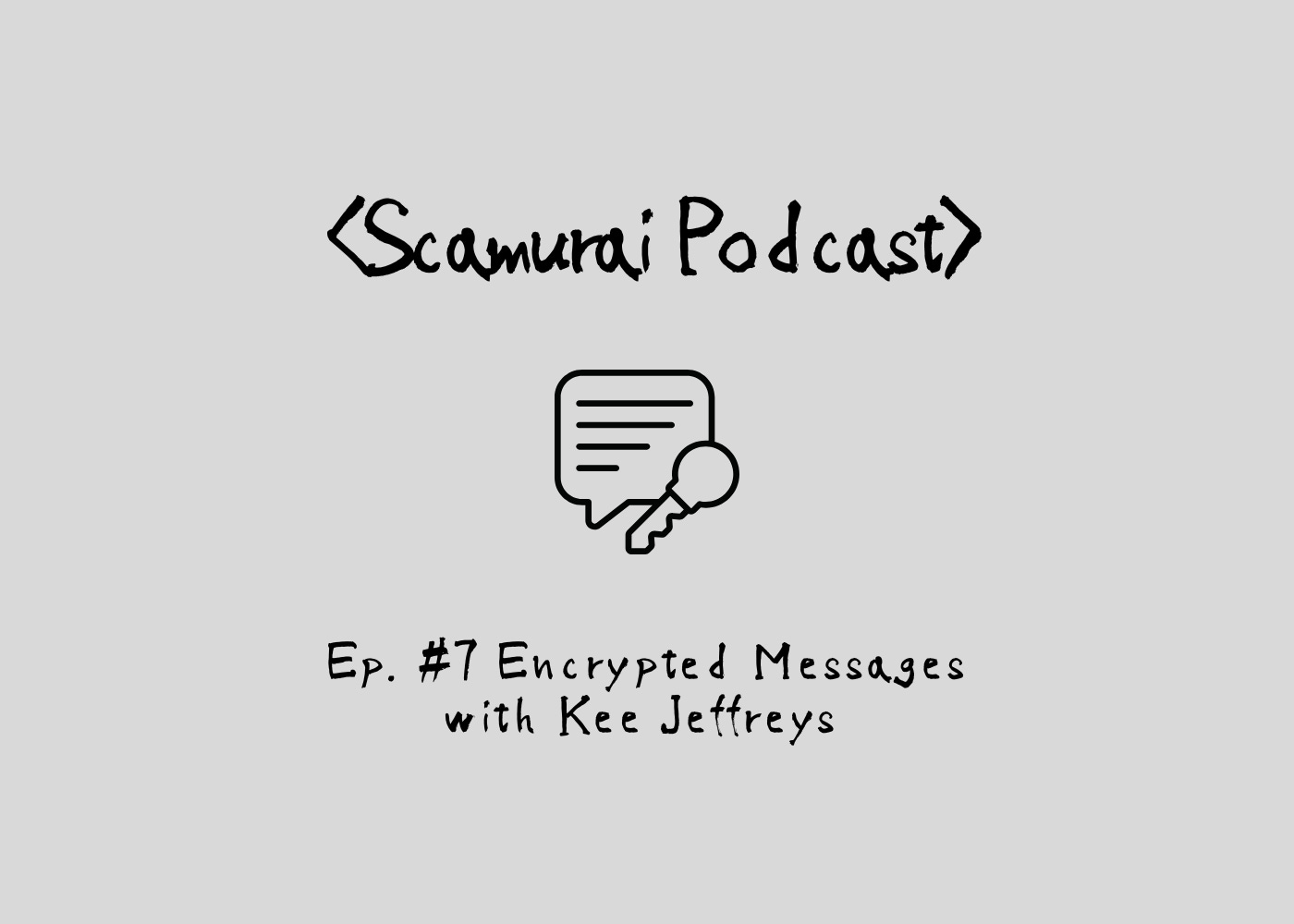UN Cybercrime Convention + Kai Trump crypto + Blockworks shutdown
Weekly newsletter #15. Nov. 2, 2025.
- Scamurai -
Weekly newsletter #15. Nov. 2, 2025.

// Headlines
This week kicked off with countries signing the UN Convention against Cybercrime in Hanoi, Vietnam. Adopted in December last year, the convention is “the first comprehensive global treaty on this matter, which provides states with a range of measures to be undertaken to prevent and combat cybercrime.” UN officials say it will help governments deal with organised crime such as terrorism, human trafficking, money laundering, and drug smuggling. But, like an increasing number of digital initiatives aimed at preventing scams, fraud, and online harms, it’s a privacy and human rights nightmare that critics say will create a dragnet for mass surveillance. It so far has 72 signatories, including the UK, the European Union, China, and Russia. The U.S. has refused to sign.
State-run media in scam hotspots like Cambodia and Laos lauded their countries’ respective signings of the document, though one wonders why they are not taking a more proactive approach at home. Despite continued raids on compounds by police and lip service being paid to fighting scams, certain sacred cows appear off limits. Laos, for instance, could start with raiding the Golden Triangle Special Economic Zone (if any local officials would like photos of the scam compounds there, complete with security guards dressed as Chinese policemen, Scamurai would be happy to oblige).
The signing of the convention last weekend came just ahead of the ASEAN Summit in Kuala Lumpur. ASEAN has been urged to take a more proactive stance on combatting regional scam networks. But its not just Cambodia and Myanmar that warrant attention. Any delegates still in KL might want to ask their Grab driver to point out the many condos rumoured to have been converted into scam compounds in the city. One driver recently told Scamurai he has a regular stream of customers, mostly Chinese, travelling from the airport to work in them.
Elsewhere, crypto news outlet Blockworks shut down its news division this week, leaving reporters and editors out of work. The company’s cofounder, Jason Yanowitz, came under particular criticism for the callous way he announced it, bragging about experiencing “massive growth across all business units: we’ve had record revenues in 2025 and we’ll have another record year in 2026.” Note he says “revenues”, not “profits”. Towards the end of the self-congratulatory post, he casually dropped that Blockworks had “decided to sharpen our focus on software and data and exit our news business”. It will now become a “data-first intelligence platform”, whatever that means. Scamurai, for one, was not even aware Blockworks did anything other than news. Rival data dashboard DeFiLlama’s founder, 0xngmi, also claimed this week that Blockworks used data stolen from their own (free) data product. (Blockworks said this was not true.)
The BBC has revealed that Andrew Mountbatten Windsor, the Epstein-loving cretin formerly known as Prince Andrew, arranged a private tour of Buckingham Palace for the heads of a cryptocurrency mining firm in 2019. His ex-wife, Sarah Ferguson, also served as an ambassador for the company, Pegasus Group Holdings, which cost investors millions when it collapsed.
Get this newsletter delivered fresh and ironed to your email each week, with the latest news on scams, fraud and tech, as well as Scamurai’s latest investigations and podcast — all in one place!
// Scam gang
Thai prime minister Anutin Charnvirakul revoked the Thai citizenship of Cambodian senator Ly Yongphat this week following reports of his links to call centre scam networks. The tycoon had been under investigation for ties to human trafficking and cybercrime, which resulted in his Thai-based assets being frozen by U.S. authorities. Both he and his company, LYP Group, were sanctioned by OFAC in Sept. 2024.
Conflicting accounts of what is going on at KK Park, the notorious scam compound in Myanmar’s Myawaddy region, continue to emerge. Thai police have screened thousands of foreigners, they say crossed from Myanmar into nearby Thailand from the centres over the last few days. Of those, the Bangkok Post reported 124 had been screened as of Oct. 26, and two of those were identified as human trafficking victims. While Thai authorities have received assistance from foreign embassies such as the Indian one, they are struggling with processing people from places like Ethiopia, which has no diplomatic mission in the country. India plans to repatriate 500 citizens over the next few days. There have also been reports of fires and destruction at the compounds. However, reports citing sources inside Myanmar suggest it’s largely “business as usual”. On Oct. 27, the Irrawaddy reported many workers had simply been moved to other compounds operating in the area, and that at least a dozen are still operating normally. It claims that the group that initially conducted the raids, the government’s Karen State Border Guard Force, is now protecting the other compounds.
Thai police have since busted several scam groups that have fled the Myawaddy area en route to other compounds. Among them are a group believed to be from KK Park in Chiang Rai, who claimed they were on their way to the Golden Triangle Special Economic Zone in Laos. On Oct. 29, police also raided a luxury villa in Bangkok housing 22 suspected scammers, 21 of which were Filipino. Those detained said they had been working in Myawaddy and fled during the raids. They were staying in the villa ahead of being transferred to scam compounds in Cambodia.
A small scam compound was discovered by Thai police in Mueang District, Chiang Rai, on Oct. 31 following reports from neighbours. Four Chinese men and a substantial amount of computer equipment were found at the site.
OFAC has released a list of 25 sanctioned crypto wallet addresses connected to Prince Group’s chairman, Chen Zhi. Chen was indicted on Oct. 14 on wire fraud and money laundering charges linked to the vast network of scam compounds operating in Cambodia. On Friday, Singapore police said they had seized US$115 million in assets tied to Chen, as well as a yacht, 11 cars, and a haul of liquor. British authorities previously froze 19 properties linked to his network worth $131 million. Chen’s whereabouts are currently unknown.
Malaysian police are hunting seven nationals suspected by Singaporean authorities of involvement in a Cambodian scam syndicate. Warrants have also been issued for 27 Singaporeans linked to the same case. Singapore police said the group targeted Singaporean victims using government official impersonation scams across 438 cases with $31.5 million in losses. Fifteen suspects have already been arrested in Singapore following a joint investigation with Cambodian law enforcement.
// Number crunch
New data from British bank Barclays has shown the extent of influencers so-called “finfluencers” have on fans when it comes to investment decisions, particularly among Gen Z.
“The aspirational lifestyle projected by certain content creators can persuade their audience that they can achieve the same financial success – even when they know it might be too good to be true,” the bank said.
This despite 56% claiming they can spot the warning signs that advice may not be trustworthy and 77% recognising that taking investment advice from social media puts them at risk of scams.
// Hacks & dark markets
Check Point Research has identified around 3,000 YouTube videos associated with a malware distribution network that has been active on the site since at least 2021. The videos often show content about gaming hacks and cheats or software cracks, and add links to supposedly relevant downloads in the descriptions that in reality contain malware (predominately Lumma, though more increasingly Rhadamanthys since Lumma was disrupted by law enforcement earlier this year). Although many had already been deleted, it warned that the number it identified had tripled so far in 2025 compared to the entirety of 2024.
// Crypto
Crypto exchange MEXC has apologised to pseudonymous crypto influencer The White Whale for freezing $3 million worth of holdings, with MEXC Chief Strategy Officer Cecilia Hsueh saying on X that the exchange “fucked up”. In July, the exchange froze the funds due to “risk control rules”. The White Whale claimed MEXC had demanded he fly to Malaysia and meet them in person to get his money back. It is still unclear the exact reason why MEXC froze the funds, whether there were legitimate concerns, and whether MEXC has unfrozen them as a result of an investigation or due to The White Whale’s pressure campaign on X. Others have come forward claiming similar issues with the exchange and difficulty withdrawing funds.
The X account of former FTX CEO Sam Bankman-Fried, which may or may not be controlled by a friend on his behalf, has posted a lengthy defense of the company, claiming that “The crisis FTX faced in November 2022 was a liquidity crisis, i.e., a sudden shortage of cash. It was on track to be resolved by the end of the month—that is, until FTX’s external counsel seized control”, and that “FTX was never bankrupt, even when its lawyers placed it into bankruptcy”. Bankman-Fried is serving a 25-year prison sentence on charges including wire fraud and conspiracy to commit securities fraud.
Heather “Razzlekhan” Morgan is back on social media. Morgan was sentenced to 18 months in prison alongside husband, Ilya Lichtenstein, for laundering money from the 2016 Bitfinex crypto hack. She has presented her return as Trump slashing her sentence, which the White House has denied, and it appears she is still in custody at a halfway house. Her release date, according to the Bureau of Prisons, remains Jan 12, 2026.
Trump’s granddaughter, Kai Trump, has joined the Trump family crypto grift with a post promoting Krak, a payment app run by Kraken. “Krak is the best place to send payments to your friends anywhere in the world with no fees. Download Krak today!” She posted on Oct. 29.
Payment app Zelle is moving into crypto, becoming the latest firm to launch a stablecoin initiative. Regardless of the the fact that stablecoins are just the latest iteration of the crypto product hype cycle, one wonders whether having irreversible blockchain-based payment systems integrated onto a platform beloved by scammers is a particularly good idea.
// Podcast
A lot of [Australians] don’t realise the social media ban affects everyone, not just under sixteens. How do you determine if someone is over sixteen? You need identification or proof. People assume it only applies to under sixteens, but when it activates in December, many will be surprised they’ll have to upload their national ID or driver’s licence to access YouTube or send messages on Facebook. That’s going to feel ridiculous.
Episode #7 of the Scamurai podcast features Kee Jeffreys, co-founder of encrypted messaging app Session, covering how Tor works and why privacy matters when it comes to messaging, protecting people’s private chats, destroying privacy rights in the name of protecting kids, and whether you should give away all your personal details for cheaper supermarket pizza.
(Substack / Spotify / Apple Podcasts)
// ScamurAI
KPMG will start taking AI usage into account in the annual performance review of employees. But not in the sense that workslop will be punished. Quite the opposite in fact. Niale Cleobury, KPMG’s global AI workforce lead, instead said “we all have a responsibility to be bringing AI to all of our work, and that’s not just the leadership, that is all the way down to our juniors”.
Edi Rama, the prime minister of Albania, is doubling down on his weird AI minister experiment. Diella, his AI minister responsible for overseeing government contracts with the private sector, launched last month, is set to “give birth” to 83 children (one assumes this sounds less insane in Albanian), each of which will become AI assistants assigned to MPs in his party. They will participate in parliamentary sessions, keep records, and make suggestions.
// Big tech & big crypto
Meta has asked a US court to toss out a suit that it illegally torrented massive amounts of porn to train its AI models. The case, brought by adult filmmakers Strike 3 Holdings, claims its films were downloaded on Meta corporate IP addresses and is seeking $300 million in damages. Meta claims the files were downloaded by employees for “private personal use”.
Popular AI chatbot company Character.ai is restricting the use of its platform for under-18s, it said on Oct. 29. By Nov. 25, users under 18 will no longer be able to engage in open-ended chats and chat time will be limited, initially to two hours per day. It will also implement age verification checks and establish the AI Safety Lab, “an independent non-profit dedicated to innovating safety alignment for next-generation AI entertainment features”. The company is the subject of a lawsuit for the influence of one of its bots in the death of a teenager, and is also under fire for some of its more unsavoury chatbots, including one based on Jeffrey Epstein and another on missing child Madeleine McCann.
Indeed, tech companies setting up non-profits and boards and initiatives to combat the problems they themselves have created is something of a trend of late. In addition to character.ai and a new expert board at OpenAI, Roblox has joined a new Partnership for Youth Online Safety Initiative with the Attorney General Alliance, a bipartisan group of US state attorneys. A press release praised Roblox for “its readiness to collaborate directly with policymakers and respond to community concerns”. That’s despite Roblox being the subject of not one but two lawsuits from U.S. states — Louisiana and Kentucky — over child safety concerns, as well as a criminal investigation in Florida.
// Freshly caught
Another Elon Musk-themed scam, this time through a network of Whatsapp groups called ElonTribe which is recruiting via DMs on X.
The account had no followers, no posts and joined in August 2025 with a Vietnamese name in the handle but a Spanish one in the username. The account describes ElonTribe as “a non-profit community dedicated to uniting those who believe in the future. We charge no fees and are not here for profit”.
// Law & disorder
A Texas judge has dismissed a class action lawsuit against Logan Paul and his failed NFT project CryptoZoo due to lack of evidence.
The Gambling Supervision Commission in the UK’s Isle of Man is progressing with draft legislation to improve gambling regulation on the island by strengthening AML and CTF provisions. The island has been criticised for its lax approach to white-label services based there, including TGP Europe, which was fined $4.3 million and surrendered its license earlier this year.
A Manhattan judge has allowed a court case against OpenAI, brought by authors including Game of Thrones writer G.R.R. Martin, to proceed. The case is a consolidation of claims made by Martin, Michael Chabon, Ta-Nehisi Coates, Sarah Silverman, and others that OpenAI and Microsoft violated their copyright by training their LLMs on their work.
// Eyeroll
AI “artist” wants copyright protection for music created via the theft of millions of songs from actual artists.
// Digital rights
Denmark has withdrawn its controversial Chat Control proposal, which was put to the European Commission in 2022 to scan private chats on users’ devices for child sexual abuse material. It follows intense opposition from privacy groups. Instead, Denmark is now proposing a lighter version that would see searches remain voluntary for providers to implement, which is more in line with the current status quo.
Noyb, an Austria-based digital privacy group, has sued Clearview AI over claims that the facial recognition company and its executives are illegally scraping photos off the internet and selling them in violation of GDPR laws. It follows a class action, the settlement of which cost Clearview AI $50 million, around privacy and a fine by European data protection regulators.
// In other news
Keeping Taiwan’s internet free: inside the Open Culture Foundation’s fight for transparency and rights (Antonio Prokscha / New Bloom)
Chen Zhi: the mysterious figure accused of masterminding a $14bn crypto scam (Jonathan Head / BBC)
The lessons of an indefensible pardon for a crypto billionaire (John Cassidy / The New Yorker)
Amazon is the world’s biggest online book marketplace. It’s filled with AI knockoffs (CT Jones / Rolling Stone)
// Research
Insider Threats Loom while Ransom Payment Rates Plummet — Coveware
Get this newsletter straight to your inbox every week by subscribing. If you can, consider supporting Scamurai with a paid subscription.
Tips, vitriol and all other messages should be directed to Callan Quinn at callan@scamurai.io. Or get in touch below.








